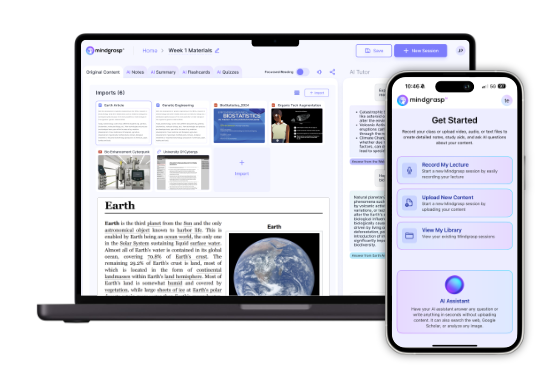
College physics can be tough, but it’s not impossible! You’ll tackle tricky concepts, use math, and try to connect things to real life. Here’s what to expect:
- Lots of math skills needed (hello, calculus!)
- Understanding complex ideas can be a challenge.
- Hands-on activities and group work make it better, though.
Stay engaged, practice daily, and don't stress—you're not alone! Stick around, and you'll find tips and tricks to succeed in your physics journey.
Key Takeaways
- College physics often presents challenges due to conceptual misconceptions and high failure rates, with some students struggling significantly on exams.
- The course typically demands a strong understanding of mathematical concepts, including calculus and differential equations, which can be daunting for many.
- Active learning and collaborative problem-solving can improve understanding and alleviate some difficulties faced in traditional lecture-based settings.
- Regular practice and engaging with challenging problems are essential for mastering the material and enhancing overall comprehension.
- Persistence and motivation can be influenced by the relevance of physics to career goals and the availability of support systems within the academic environment.
Boost Your GPA Faster with Mindgrasp
Instantly turn your class notes into smart summaries, flashcards, and quizzes—study less, learn more, and ace your exams.
Try it FreeChallenges in Early Physics Courses
When you plunge into early physics courses, you might find yourself facing some pretty tough challenges. Many students struggle with conceptual misconceptions—like kinetic energy—while traditional homework focuses too much on computation. This can zap your motivation faster than a falling apple!
You might notice:
-
High failure rates (90% on exams, yikes!)
-
Difficulty connecting principles to real-life situations
-
Weak math skills complicating problem-solving
But don’t worry; you’re not alone! Seeking help, joining study groups, and focusing on understanding concepts rather than memorizing formulas can make a huge difference. Additionally, utilizing tools like Mindgrasp's flashcards can significantly enhance your retention of essential physics concepts.
Stay curious and keep pushing through!
The Role of Course Structure and Teaching Styles
Course structure and teaching styles play a huge role in how well you grasp physics—think of it as the backbone of your learning experience.
When classes focus on active learning, you engage in hands-on activities instead of just staring at a screen. Collaborative learning lets you team up with classmates to solve problems, making tough concepts a bit easier.
Here’s what you might find helpful:
-
Less lecture time means more interactive sessions.
-
Group tasks tackle tricky ideas together.
-
Socratic dialogues spark deeper thinking.
With the right structure, physics can transform from a challenging obstacle to an exciting adventure!
Try Mindgrasp for Free!
Experience an easier, faster way to boost your GPA. Sign up now to try Mindgrasp AI for free and see how AI-powered learning transforms your study routine.
Try it FreeMathematical Demands and Conceptual Complexity
Physics isn’t just about formulas and theories—it’s also a math marathon! To tackle the mathematical demands and conceptual complexity, you’ll need:
-
Calculus skills for limits, derivatives, and integrals—these are your bread and butter!
-
Differential equations to model real-world situations, like how circuits work or waves behave.
-
Abstract thinking to connect math (like integration) with physical ideas (like energy).
Embracing mathematical rigor will boost your conceptual understanding.
Don’t worry if it feels tough at times—everyone’s in the same boat! Just keep practicing, and you’ll see the beauty in the math behind the physics!
Effective Study Strategies for Success
Studying effectively can feel like a juggling act, but with the right strategies, you can catch every ball! Focus on active engagement in class—ask questions, join discussions, and tackle clicker questions.
Make problem-solving a daily habit, challenging yourself with tough textbook problems. Don't forget to review your notes within 24 hours to lock in that knowledge.
Team up with peers for collaborative learning; explaining concepts can really boost your understanding!
Finally, take care of yourself—sleep, eat well, and stay active. Consistency is key, so set a routine and stick to it.
You've got this!
Understanding Outcomes and Student Persistence
When you plunge into a physics program, you might wonder how well you’ll stick with it. Understanding outcomes and student persistence is key. Many students start with confidence but face challenges that can sway their journey.
Here are three important factors to reflect on:
-
Introductory performance: Your grades in early classes can make or break your commitment.
-
Career relevance: Knowing how physics connects to your future job can boost your motivation.
-
Support systems: Engaging with your department and utilizing resources can help keep you on track.
Stay curious and make connections—it's all part of the adventure!
Conclusion
In the end, college physics can feel like a puzzling path, but you can totally tackle it! With the right study strategies and a sprinkle of persistence, you’ll find success. Remember, it’s all about practice—don’t shy away from asking questions or seeking help. So, embrace the excitement of learning, and who knows? You might just become a physics fanatic! Ready to conquer those challenges? Let’s plunge into it and make those concepts stick!
Download Mindgrasp from the App Store
Access Mindgrasp at your desk for in-depth research and writing projects, or use the mobile version to easily access your content on-the-go or record live lectures.
Download the iOS App
